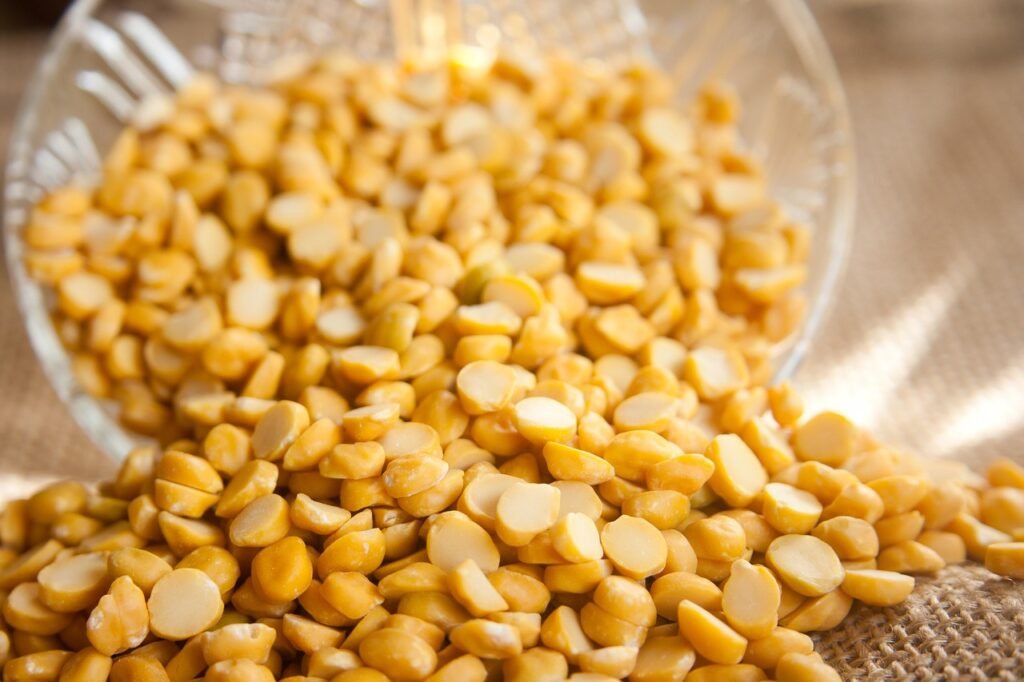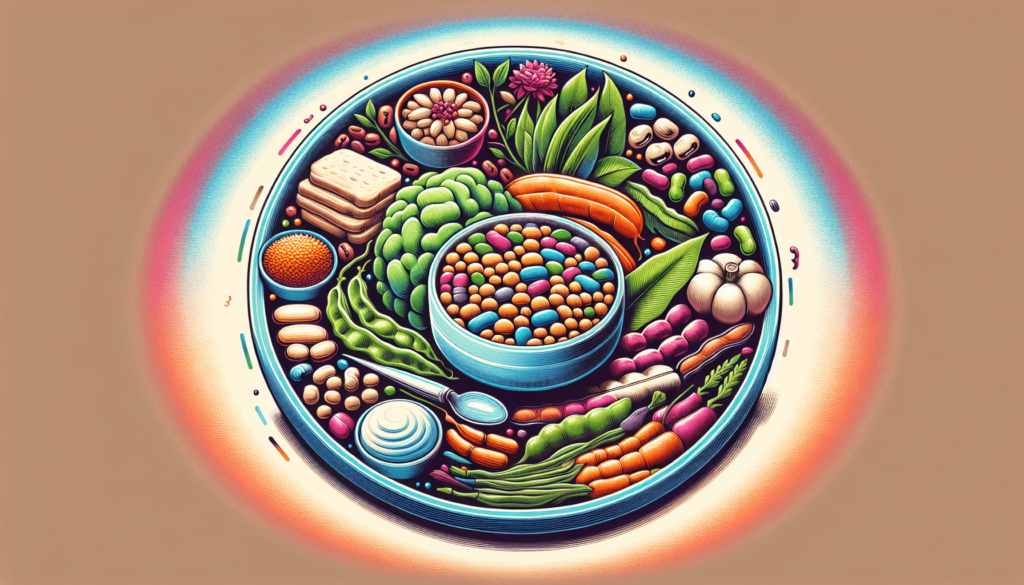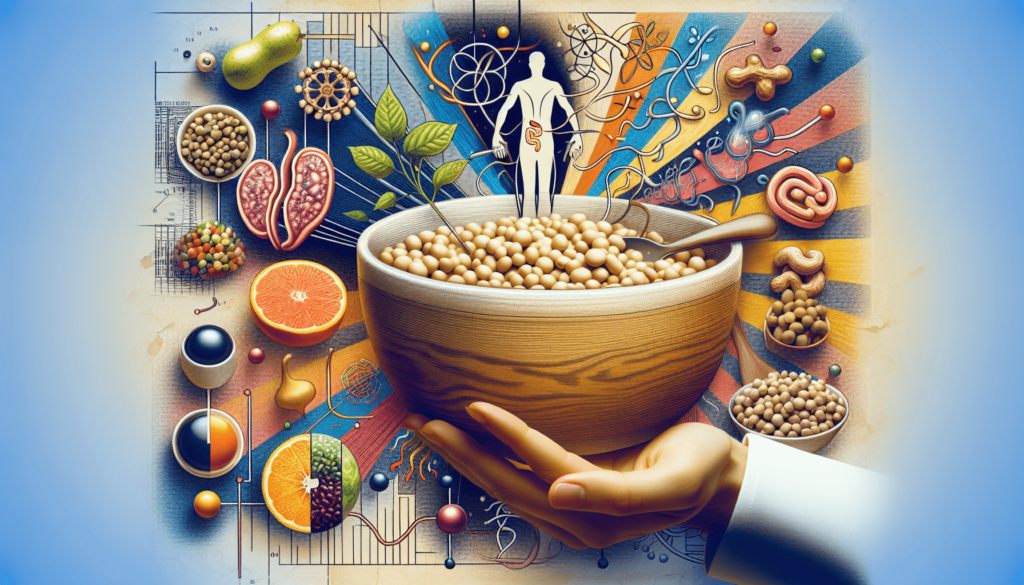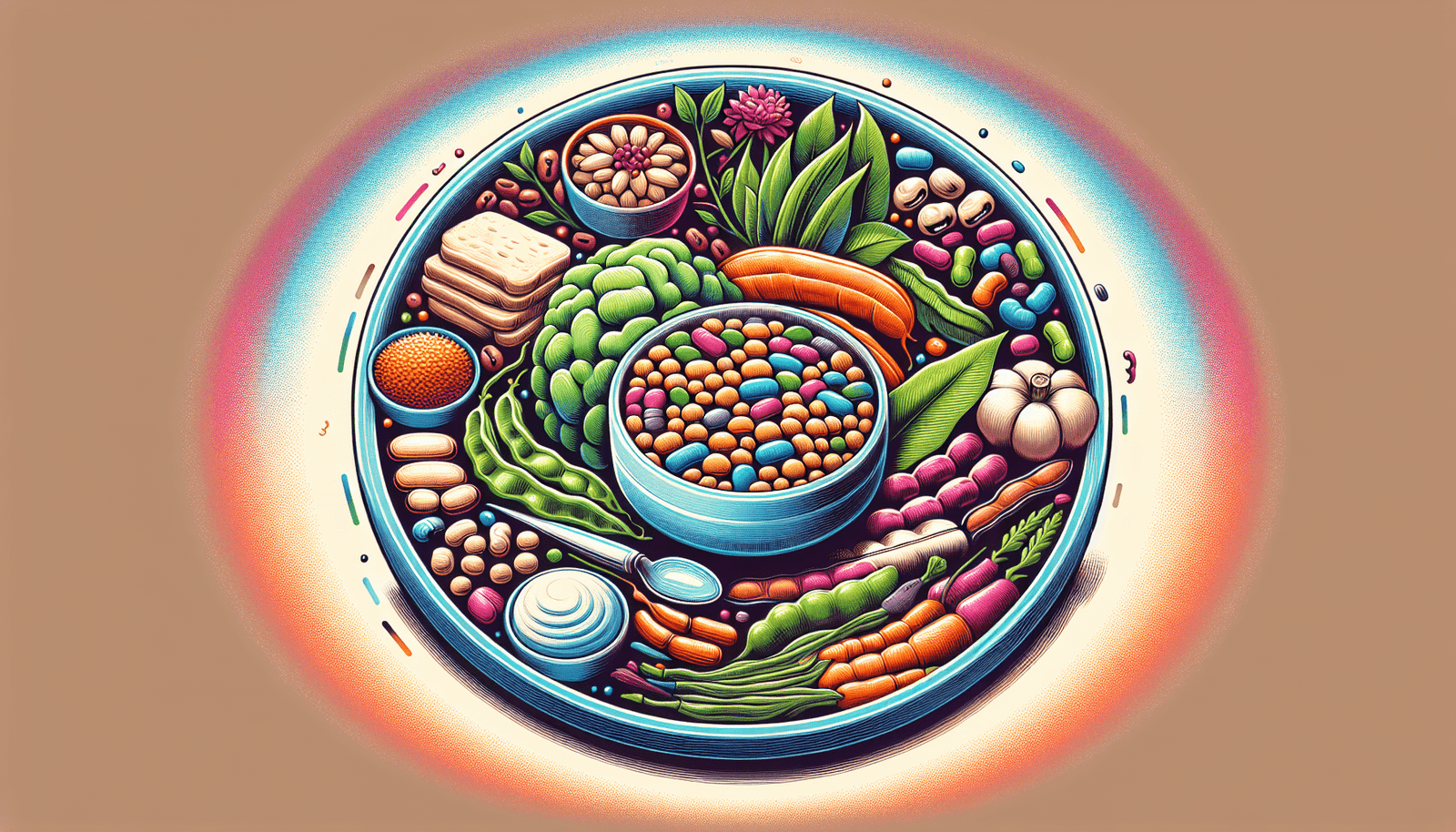If you suffer from the discomfort of irritable bowel syndrome (IBS), you may have wondered if legumes could provide some relief. Well, wonder no more! In this article, we will explore the potential benefits of legumes in alleviating the symptoms of IBS. From their high fiber content to their ability to promote healthy gut bacteria, legumes may just be the solution you’ve been looking for. So, let’s dig in and discover how these little powerhouses can make a big difference in your digestive health.
What is Irritable Bowel Syndrome?
Definition of IBS
Irritable Bowel Syndrome (IBS) is a common gastrointestinal disorder that affects the large intestine. It is characterized by a group of symptoms, including abdominal pain, bloating, and changes in bowel habits. While the exact cause of IBS is unknown, it is believed to be the result of a combination of factors, such as abnormal muscle contractions in the intestines, heightened sensitivity to pain, and an imbalance of gut bacteria.
Common Symptoms of IBS
The symptoms of IBS can vary from person to person and may range from mild to severe. Some of the most common symptoms include:
-
Abdominal pain or cramping: This is typically experienced in the lower abdomen and may be relieved by having a bowel movement.
-
Bloating and gas: Many individuals with IBS experience excessive bloating and increased gas production, which can be uncomfortable.
-
Diarrhea: Some people with IBS have frequent loose stools or diarrhea, often accompanied by an urgent need to have a bowel movement.
-
Constipation: On the other hand, some individuals may experience infrequent bowel movements or difficulty passing stools, leading to constipation.
-
Alternating bowel habits: It is also common for individuals with IBS to experience a mix of constipation and diarrhea, with their bowel habits fluctuating between the two.
-
Changes in stool appearance: Stools may appear different from usual, such as being lumpy, watery, or containing mucus.
-
Abdominal bloating: The abdomen may become visibly distended or bloated, which can contribute to discomfort.
-
Fatigue and disrupted sleep: IBS symptoms can often lead to fatigue and disrupted sleep patterns, impacting overall quality of life.
It is important to note that these symptoms can be triggered by various factors, including stress, certain foods, hormonal changes, and even infections. Each person’s experience with IBS can be unique, and understanding individual triggers is crucial in managing the condition effectively.
The Role of Diet in Managing IBS
Dietary Triggers for IBS
Diet plays a significant role in managing IBS symptoms. Certain foods and ingredients can trigger or exacerbate symptoms in individuals with IBS. While these triggers can vary between individuals, some common culprits include:
-
Fatty foods: High-fat foods, particularly those rich in saturated and trans fats, can stimulate contractions of the intestines, leading to diarrhea and abdominal discomfort.
-
Spicy foods: Spices such as chili peppers, curry, and hot sauces can irritate the digestive tract, causing symptoms like abdominal pain and diarrhea in some individuals.
-
Dairy products: Many people with IBS are lactose intolerant, which means they have difficulty digesting lactose, the sugar found in milk and dairy products. Consuming dairy can result in bloating, gas, and diarrhea.
-
Gluten-containing foods: Some individuals with IBS may have a sensitivity to gluten, a protein found in wheat, barley, and rye. Consumption of gluten can trigger symptoms like bloating, diarrhea, and abdominal pain.
-
Gas-producing foods: Certain foods, such as beans, onions, cabbage, and carbonated drinks, can produce excess gas in the digestive system, leading to bloating and discomfort.
Understanding and identifying individual trigger foods is essential for managing symptoms effectively. This may involve keeping a food diary and working with a healthcare professional or registered dietitian to pinpoint specific triggers.
FODMAP Diet and IBS
One dietary approach that has shown promise in managing IBS symptoms is the low FODMAP diet. FODMAPs (Fermentable Oligosaccharides, Disaccharides, Monosaccharides, and Polyols) are a group of carbohydrates that are poorly absorbed by some people. They can cause symptoms like bloating, gas, and changes in bowel habits in individuals with IBS.
The low FODMAP diet involves eliminating foods high in FODMAPs for a period of time and gradually reintroducing them to identify which ones trigger symptoms. While legumes are generally considered high in FODMAPs, they can still be included in the diet in small quantities or prepared in a way that reduces FODMAP content, as discussed later in this article.

This image is property of pixabay.com.
Introduction to Legumes
Definition of Legumes
Legumes are a type of plant belonging to the family Fabaceae. They are characterized by their fruit, which comes in the form of a pod enclosing seeds. Legumes are an essential part of many diets worldwide and include a wide variety of plants such as beans, lentils, peas, chickpeas, and soybeans.
Types of Legumes
Legumes are incredibly diverse and can be categorized into different types, each with its own unique characteristics. Some common types of legumes include:
-
Beans: This category includes varieties such as black beans, pinto beans, kidney beans, navy beans, and cannellini beans. Beans are a staple in many cuisines globally and are packed with nutrients.
-
Lentils: Lentils are small, lens-shaped legumes that come in various colors, including green, red, black, and brown. They are highly versatile and are used in a wide range of dishes, such as soups, stews, and salads.
-
Peas: Peas are round, edible seeds that typically grow in a pod. They can be further classified into different types, including green peas, snow peas, and sugar snap peas.
-
Chickpeas: Chickpeas, also known as garbanzo beans, are pale, round legumes with a slightly nutty flavor. They are commonly used in Mediterranean and Middle Eastern cuisine, where they are featured in dishes like hummus and falafel.
-
Soybeans: Soybeans are small legumes that are a rich source of protein and are commonly used to produce various soy-based products, such as tofu, tempeh, and soy milk.
There are many other types of legumes, each with its own unique taste, texture, and nutritional profile. Including a variety of legumes in your diet can provide a wide range of health benefits.
Nutritional Value of Legumes
High Fiber Content
One of the key nutritional benefits of legumes is their high fiber content. Fiber is an essential nutrient that plays a crucial role in digestive health and overall well-being. Legumes are considered an excellent source of dietary fiber, providing both soluble and insoluble fiber.
Soluble fiber helps to soften stools, making them easier to pass through the digestive tract. It can also help regulate blood sugar levels and lower cholesterol levels. Insoluble fiber, on the other hand, adds bulk to the stool, promoting regular bowel movements and preventing constipation.
Consuming an adequate amount of fiber from legumes can contribute to overall gut health and may help alleviate some symptoms of IBS, such as constipation.
Protein Content
Legumes are also an excellent plant-based source of protein. Protein is essential for various functions in the body, including the growth and repair of tissues, hormone production, and immune function.
While animal sources such as meat, poultry, and fish are commonly associated with protein consumption, legumes offer a valuable alternative for individuals following a vegetarian or vegan diet. Including legumes in your IBS-friendly diet can help ensure an adequate protein intake and support overall health.
Vitamins and Minerals
Legumes are rich in essential vitamins and minerals, making them a nutrient-dense food choice. They contain significant amounts of folate, iron, magnesium, potassium, and zinc.
Folate is important for cell division and DNA synthesis, while iron is essential for oxygen transport in the body. Magnesium and potassium are involved in muscle function and nutrient metabolism, while zinc plays a crucial role in immune system function and wound healing.
Incorporating legumes into your diet can help ensure a diverse range of essential nutrients, supporting overall health and well-being.

This image is property of pixabay.com.
Potential Benefits of Legumes for IBS
Increased Fiber Intake
As mentioned earlier, legumes are an excellent source of dietary fiber. Increasing your fiber intake through legume consumption can have a positive impact on IBS symptoms, particularly those associated with constipation.
Including fiber-rich legumes in your diet can help add bulk to the stool, promote regular bowel movements, and alleviate constipation. However, it is important to increase your fiber intake gradually and ensure adequate fluid intake to minimize the risk of digestive discomfort.
Improved Bowel Movements
For individuals with IBS, achieving regular bowel movements can be a challenge. Legumes, with their combination of soluble and insoluble fiber, can help regulate bowel movements and promote normal stool consistency.
The fiber content in legumes helps to soften and add bulk to the stool, making it easier to pass through the digestive system. This can be particularly beneficial for those with constipation-predominant IBS, as it promotes regularity and relieves discomfort.
Enhanced Gut Health
The health of the gut microbiota, the community of microorganisms residing in the digestive tract, plays a crucial role in overall well-being. Legumes, with their fiber content, act as a prebiotic, providing nourishment for beneficial gut bacteria.
Consuming legumes regularly can help promote the growth of beneficial bacteria, leading to a more balanced and diverse gut microbiota. This can have a positive impact on digestive health, immune function, and overall well-being.
Regulation of Gut Microbiota
Emerging research suggests that legume consumption may help regulate the composition and activity of the gut microbiota in individuals with IBS. A healthy and diverse gut microbiota is essential for optimal digestive function and overall health.
Legumes can contribute to gut microbiota regulation by providing fermentable fiber that promotes the growth of beneficial bacteria. This can help restore balance to the gut microbiota, potentially reducing symptoms of IBS.
Potential Drawbacks of Legumes for IBS
Gas and Bloating
One potential drawback of legumes for individuals with IBS is their tendency to cause gas and bloating. Legumes contain a type of carbohydrate called alpha-galactosides, which can be difficult to digest and may lead to excessive gas production.
This can result in symptoms like bloating, flatulence, and abdominal discomfort. However, this can vary from person to person, and some individuals with IBS may tolerate legumes better than others.
Sensitivity and Allergies
While legumes are generally well-tolerated by most individuals, some people may have allergies or sensitivities to specific legumes, such as peanuts or soybeans. Allergic reactions can range from mild to severe and may include symptoms like hives, swelling, difficulty breathing, or digestive upset.
If you suspect an allergy or sensitivity to legumes, it is important to consult with a healthcare professional to determine the appropriate course of action.
Effects on FODMAP Intolerance
As mentioned earlier, legumes are considered high in FODMAPs, a group of carbohydrates that can trigger IBS symptoms in some individuals. This can make legumes problematic for those following a strict low FODMAP diet.
However, it is worth noting that the FODMAP content of legumes can vary depending on factors such as the type of legume, the preparation method, and the serving size. Working with a registered dietitian can help identify suitable legume options and strategies to incorporate them into a low FODMAP diet.

This image is property of pixabay.com.
Research Studies on Legumes and IBS
Effects of Legumes on IBS Symptoms
Several studies have explored the potential effects of legume consumption on IBS symptoms. A randomized controlled trial published in the journal Nutrients in 2020 found that including legumes in the diet of individuals with IBS improved symptoms such as bloating, flatulence, and stool consistency.
Another study published in the Journal of the American Dietetic Association demonstrated that a diet high in legumes, fruits, vegetables, and whole grains was associated with a reduced risk of IBS symptoms.
While more research is needed to fully understand the relationship between legumes and IBS, these studies suggest that legume consumption may have a positive impact on symptom management.
Impact of Legume Consumption on Gut Health
Research has also investigated the effects of legume consumption on gut health markers in individuals with IBS. A study published in the European Journal of Clinical Nutrition examined the impact of consuming chickpeas, lentils, or beans for 3 weeks on gut health markers.
The study found that legume consumption led to an increase in beneficial gut bacteria and improvement in gastrointestinal symptoms. These findings suggest that legumes may play a role in modulating the gut microbiota and improving gut health in individuals with IBS.
While these studies provide promising insights, further research is needed to confirm the specific mechanisms through which legumes exert their beneficial effects on IBS symptoms and gut health.
Incorporating Legumes into an IBS-friendly Diet
Preparation Techniques to Reduce Digestive Discomfort
To minimize potential digestive discomfort associated with legumes, there are several preparation techniques that can be employed:
-
Soaking legumes: Soaking legumes overnight can help reduce their gas-producing compounds, making them easier to digest.
-
Cooking legumes thoroughly: Adequate cooking of legumes can further break down complex carbohydrates and minimize the likelihood of digestive discomfort.
-
Incorporating digestion-friendly spices and herbs: Adding digestion-friendly spices like cumin, ginger, or fennel seeds during the cooking process can help enhance digestion and reduce potential gas production.
Best Legumes for IBS
While legumes are generally considered beneficial for individuals with IBS, the specific choice of legumes can vary depending on an individual’s tolerance. Some legumes that are generally well-tolerated by individuals with IBS include:
-
Lentils: Lentils are often well-tolerated and can be included in various dishes, including soups, stews, and salads.
-
Split peas: Split peas are another legume option that can be easily digested and can be used in dishes like split pea soup or as a side dish.
-
Chickpeas (in moderation): While chickpeas can be high in FODMAPs, some individuals with IBS tolerate them well. Start by consuming small amounts and monitor your individual tolerance.
It is important to pay attention to one’s own body and monitor individual tolerance when incorporating legumes into an IBS-friendly diet.
Serving Size and Frequency
When incorporating legumes into an IBS-friendly diet, it is important to consider serving size and frequency. Start with smaller portions and gradually increase your intake over time to assess your individual tolerance.
Moderation is key, as consuming large amounts of legumes at once may increase the risk of symptoms such as gas and bloating. Additionally, it is advisable to spread legume consumption throughout the week rather than consuming them in large quantities on a single day.

Tips for Managing IBS Symptoms with Legumes
Slowly Increase Legume Intake
To ensure optimal digestion and minimize potential digestive discomfort, it is recommended to slowly increase your legume intake. Start with small portions and gradually increase serving sizes over time.
This approach allows your digestive system to adapt to the added fiber and other components of legumes. By gradually increasing intake, you can identify your personal tolerance and minimize the risk of exacerbating IBS symptoms.
Monitor Personal Tolerance
Every individual’s experience with IBS is unique, and what works for one person may not work for another. It is important to monitor your own tolerance to legumes and pay attention to how they affect your IBS symptoms.
If you notice any adverse effects, such as increased bloating or bowel disruptions, it may be necessary to reduce your legume intake or reassess the specific type of legume you are consuming.
Combine Legumes with Other IBS-friendly Foods
To further support digestion and minimize potential digestive discomfort, consider incorporating legumes into meals that include other IBS-friendly foods. Combining legumes with vegetables, whole grains, and lean proteins can provide a balanced and nutritious meal while reducing the likelihood of triggering IBS symptoms.
Additionally, cooking legumes with digestion-friendly spices and herbs can help enhance their flavor and digestion while adding variety to your meal.
Consulting a Healthcare Professional
Importance of Individualized Advice
It is essential to recognize that everyone’s experience with IBS is unique, and what works for one person may not work for another. Consulting a healthcare professional, such as a gastroenterologist or registered dietitian, can provide individualized advice and guidance tailored to your specific needs.
They can help assess your triggers, provide personalized recommendations for managing IBS symptoms, and assist in designing an IBS-friendly diet that includes legumes.
Seeking Guidance on Dietary Modifications
If you are considering incorporating legumes into your diet as part of an IBS management strategy, it is advisable to seek guidance from a healthcare professional or registered dietitian. They can provide specific recommendations and guide you through dietary modifications while ensuring your nutritional needs are met.
A healthcare professional can also provide clarity on any concerns or questions you may have regarding legume consumption and IBS management.
In conclusion, legumes can be a valuable addition to an IBS-friendly diet. Their high fiber and protein content, as well as their beneficial impact on gut health, make them a nutritious choice for individuals with IBS. While legumes may pose potential drawbacks such as gas and bloating, personal tolerance and preparation techniques can help minimize these effects. By working closely with a healthcare professional and incorporating legumes strategically, you can harness the potential benefits of legumes while managing your IBS symptoms effectively.


